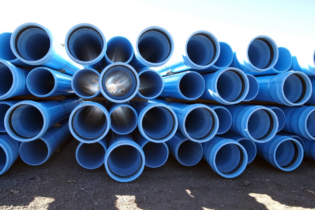Take a look in the office cleaning cabinet. You will likely find at least 15 different cleaning agents designed to clean 15 different things. The irony is that one product could probably clean everything, but cleaning companies wouldn’t want you to only buy one product, now would they? They want you to spend money. They want to make money. So they design a product only for cleaning toilets, and another ‘specifically’ designed to clean floors, yet another to clean office desks, and the list goes on.
All these synthetic cleaning products use chemicals that are not only dangerous to the environment, but also to your health and to the health of those around you. The primary function of cleaning is to reduce dirt, dust, bacteria and moulds from surfaces. Unfortunately, modern societies have developed a cleanliness and ‘germ hating’ obsession, which has led to the development of ever more powerful cleaning agents. Millions of kilograms of general purpose cleaners are consumed worldwide each year. The average household and workplace now has a collection of synthetic chemicals that would only have been found in a laboratory 50 years ago. Synthetic cleaning agents contain volatile organic chemicals (VOCs) that can be inhaled into our lungs as we use them, while many other ingredients are easily absorbed by the skin. These VOCs are heavily polluting in their production, contribute to air pollution and smog and they biodegrade slowly and incompletely. In addition, they can cause allergic reactions and worsen asthma, they can irritate skin, lungs, sinuses, eyes and throats (they may even damage them), they can cause brain damage at high doses and be addictive and they have been linked to infertility and miscarriages. Some chemicals are carcinogenic (cancer-causing) and yet they are sold in your local store, and are probably used to clean your company’s bathroom. Some cleaning agents list formaldehyde as an ingredient, an ingredient which is banned globally in developed countries and yet it is found in several common cleaning agents. Considering the risks of using synthetic cleaning products, joining the ‘green side’ should be an obvious choice for you and your company.‘How?’ you may ask; by simply switching from synthetic cleaning products to green cleaning products that are not harmful to your health and are just as effective when it comes to cleaning. Because green cleaning products are based on enzymes and certain types of friendly bacteria, which are found in every living organism, they provide clear win-win benefits for both cleaning businesses and the environment. Enzymes and bacteria are nature’s tools; they are biodegradable proteins that speed up vital biological processes. When enzymes are finished with their work, they are absorbed back into nature’s cycle.
Enzyme-based cleaners are increasingly being used instead of synthetic chemicals throughout the cleaning industry in food services, the hospitality industry, healthcare facilities factories, schools, jails, sporting venues and other large public facilities. They are used to clean and deodorise carpets, kitchens and bathrooms, eliminate grease from cracks, grout and hard floors, and even to keep urinals smelling fresh. They remove deposits on pipes, clear drains and keep pipe lines free-running and odour-free. Among the many benefits of using bio-enzymes are their safety, long-lasting cleaning ability and cost-effectiveness. They go beyond cleaning well – the microbes continue to eliminate residual organics after the job is done and the cleaner has left. And, using them can reduce the risk of regulatory headaches and potential liabilities associated with using more hazardous chemicals. So come to the green side. Turn to green cleaning products and your company will be one step closer to reaching their green goals. In fact, you will not only improve productivity but will most certainly cut down on the amount of lost work time due to caustic chemical exposure. In short, everybody wins. John Coetzee, CEO of Managed Care Economical Solutions (MCES)





